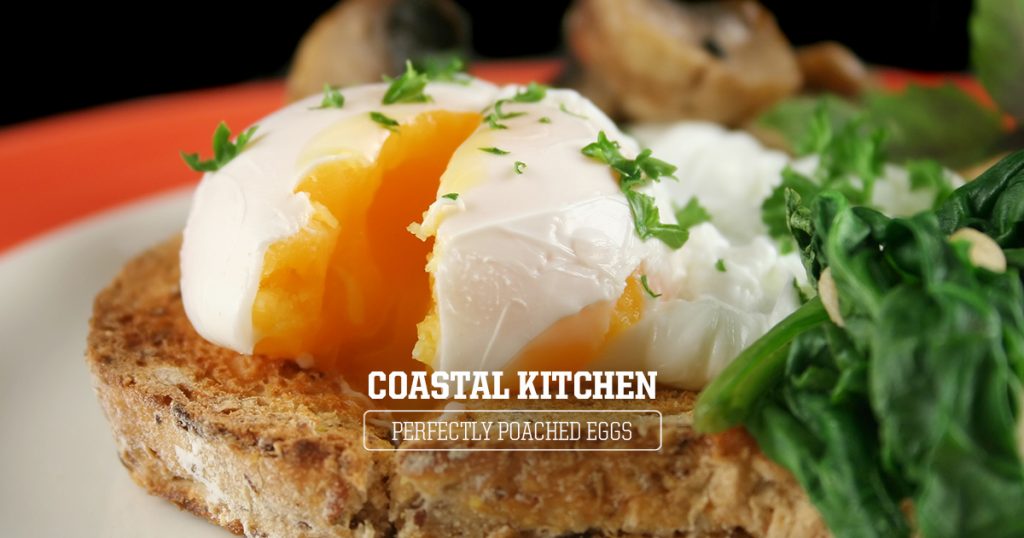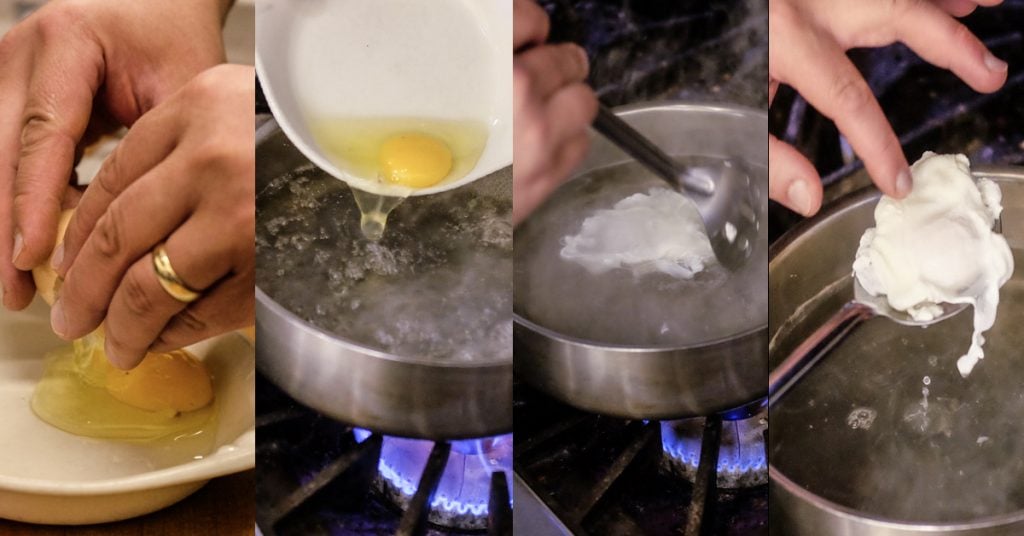Perfectly Poached Eggs - Coastal Kitchen
July 29, 2016
At it’s core, poaching is as simple as cracking an egg into boiling water. Sounds easy, right? So, why all the fuss and stories of poaching being difficult? Most egg-poaching horror stories make mention of the dreaded stringy egg whites swirling about in the pan, or having to create a “vortex”. We’ve asked award winning chef, Matt Bennett, to help us dispel the myths about poaching eggs and put our poaching minds at ease. Here’s Matt’s method for poaching he uses in his restaurant every day, and some helpful tips on creating the perfectly poached egg.
Ingredients:
- 1 farm fresh egg
- 2 teaspoons of vinegar (white or apple cider)
- 6 cups water
Directions:
Bring 6 cups of water to a vigorous boil in a medium saucepan
Add vinegar to the water
Crack egg onto a small saucer
Hold the saucer with the egg close to the boiling water and quickly, but gently slide the egg off the plate into the boiling water.
Reduce heat immediately so that there are only a couple of small bubbles in the pan and begin slowly moving the egg around in the water with a slotted spoon
After 2 or 3 minutes the egg should be nearly cooked - check that the egg white is firm and set, but the yolk is still semi liquid
Lift the egg from the water with the slotted spoon and let drain
You're done! Enjoy your egg on a bed of avocado and polenta, or simply on a piece of toast. Fancy or simple, just enjoy your work.

Chef’s Tips
Freshness Matters
Egg whites begin to break down over time and become watery. This watery bit of the egg white is what causes those stringy whites that egg-poachers fear. As simple as it sounds, the best cure for stringy egg whites is to use fresh eggs when poaching.
Vinegar, Yes. Salt, No
Adding vinegar to the boiling water will help the egg whites coagulate quickly, reducing the amount of stringy whites you may experience. Salt on the other hand does the opposite of the vinegar. Adding salt can contribute to stringy whites.
The Vortex
Some recipes call for the chef to use a wooden spoon to create a vortex in the boiling water in an effort to contain the egg white and keep it from becoming stringy. While this may be true, using fresh eggs and a little vinegar can go a long way in preventing the need of a vortex. Having a heavy, rolling boil when you place your egg in the water is usually sufficient.
Cooking Ahead
Chef Matt points out that poaching eggs is a great way to have eggs ready ahead of time if you’re hosting a number of guests and you don’t have a big, commercial kitchen with helpers. “Poaching is great for big parties because you can cook a bunch of eggs ahead of time.” Matt explains, adding “Take the eggs out of the boiling water just before they’re done and place them in cold water. When it’s time for breakfast, place the eggs in some hot water for a few seconds to heat them up and serve. It’s really easy.”
